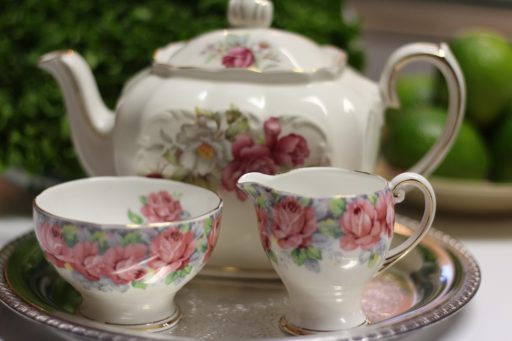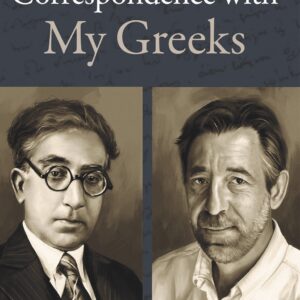What makes just the right novel be just the right thing for my bedtime reading? Well, it has to be engaging, but not gripping. (Gripping would make me too stimulated to sleep.) No violence (physical or psychological) allowed. And while any novel takes me out of myself, which is exactly what bedtime calls for, the world it takes me into must be one of an underlying peace.
This is why, over the past few months, I’ve been re-reading Barbara Pym’s novels at bedtime. Pym is better known in her native England than here, so a bit of background is in order. She wrote her thirteen novels over the span of around thirty years from the 1940s through the 1970s. Nearly all take place in country villages, where the local church and vicar play a big part. From her experience working as an editor for an anthropological journal, several novels feature characters who are anthropologists.
Pym’s novels are usually called “social comedies” — but they’re not laugh-out-loud fun. Rather, their tone is gently wry, with what one reviewer called Pym’s “profoundly unsoppy kindliness.” In most of the novels, nothing much happens; the characters end up pretty much as they began. The interest for the reader is in the touching peculiarities of most of the characters themselves, who are often “confused” or “muddled.” There is the occasional villain—though that’s too strong a term for the bumbling or snobbish or disagreeable character that she sometimes creates.
Take Pym’s final novel, A Few Green Leaves. This minor masterpiece features both of Pym’s key character types: the vicar (Tom) and the anthropologist (Emma), who has come to the unnamed village to “observe” its ways. Typical of Pym’s insight into our little follies is that Tom is more focused on his search for the local DMV (deserted medieval village) than on his present clerical duties, while Emma is perplexed about whether she loves (or even likes) her former colleague-lover, Graham.
It isn’t that any particular character in the novel is comic; it’s the compassionate wit with which Pym treats all of them—even the self-important village doctor, jealous of his younger rival who has set up his practice there. As another reviewer put it, “Barbara Pym knows everything there is to know about the quiet, very funny, small-eventful, poignant lives of the people in her books.”
The context in which the novel’s title comes up says it all. Miss Grundy (a villager “of uncertain age”) is doing the flowers in the church and tells Tom she’ll add a few more leaves. “A few green leaves can make such a difference,” she remarks. This, in itself and as the novel’s title, is perfectly Pym: all her attention to the littleness of things in daily life that “can make such a difference.” We don’t need a lot for happiness, Pym believes; just “a few green leaves.”
And tea. In Pym’s world, we definitely need tea. If I added up all the cups of tea drunk in Pym’s complete oeuvre, they’d easily fill a good size swimming pool. And the centrality of tea in Pym’s novels isn’t an exaggeration: my Canadian sister tells me that, in fact, tea is essential to the English (and Canadian) daily routine.
Of course for the English, “tea” isn’t just the drink. It’s a meal, with cakes or little sandwiches or eggs and chips. That’s why Emma, after a community outing, couldn’t invite Tom and his sister back to her cottage for tea: because “she had no cake.”
In all of Pym’s novels, every church service is followed by worshippers moving to the church hall for tea. Hence the clergy’s constant complaint about “the innumerable cups of sweet tea and biscuit” they’re forced to consume. All this tea can even keep someone away from church: in another novel, An Unsuitable Attachment, an anthropologist confesses to his colleague that “personally I should find the endless cups of tea one of the more trying aspects of church life.”
Throughout Pym’s novels, tea is especially “needed” in times of stress. After a funeral, for instance, “as everybody knew, the natural grief and tension of the occasion would be relaxed in the universal comfort of cups of tea” (A Few Green Leaves).
Comic stress requires tea as well. In The Sweet Dove Died, middle-aged Leonora has joined the young James (whose love she desires) and James’s young lover Ned for a museum outing. Afterwards, Leonora is tired and Ned becomes petulant: “capricious as a child,” he “suddenly decided he had had enough. He demanded tea, and they must have muffins or hot buttered toast.”
So Pym can play with tea’s solace in A Glass of Blessings: the Anglican Father Ransome, after the “disaster” of his priest friend’s becoming Roman Catholic, sighs that “Life has to go on, and I suppose a cup of tea does make it seem to be doing that more than anything.”
Tea is so crucial that the process of making it causes a quarrel in Less Than Angels. “Not that the making of tea can ever be regarded as a petty or trivial matter and Miss Clovis did seem to have been seriously at fault. Hot water from the tap had been used, the kettle had not been quite boiling, the teapot had not been warmed: whatever the details, there had been words….”
It’s only natural, then, that the well-known cliché (clearly of English origin) taking tea as a metaphor should pop up in Pym. It’s early in The Sweet Dove Died, after the antique dealer Humphrey has taken Leonora, whose love he seeks, to an art exhibition that she enjoyed. “Definitely her cup of tea, thought Humphrey.”
And that’s my own thought about Barbara Pym’s novels: they’re definitely my cup of tea.
Peggy Rosenthal has a PhD in English Literature. Her first published book was Words and Values, a close reading of popular language. Since then she has published widely on the spirituality of poetry, in periodicals such as America, The Christian Century, and Image, and in books that can be found here.





